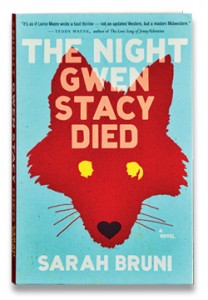
What led you to become a book author? What do you hope to achieve or gain?
Like every author, I guess, reading led me to writing. It’s difficult to be an observer of a dialogue for long before wanting to join it. Writing has always been an important part of the way I process and react to the world around me. I hope that the work I produce will continue to find its readers.
Are there other writers (or non-writers) who have influenced you and how so?
I was influenced most by the the short fiction of contemporary North American women writers while learning to write — Lorrie Moore, Joan Didion, Deborah Eisenberg, Grace Paley, Alice Munro, and they had an enormous impact on the way I thought about voice, tone and structure. Lately I’m reading more contemporary writing from Latin America — writers like Patricio Pron, Juan Gabriel Vásquez, César Aira, Valeria Luiselli.
What are your likes and dislikes about writing?
The best part about writing is the opportunity that it allows you to spend time in interior worlds of your own creation. The worst part is that the more time you spend in those interior worlds, the less time you spend in this one.
Do have any rituals as to how, when and where you work?
I like to write in the morning, at home, ideally in three- or four-hour shifts. I used to be fastidious about this, but lately I work whenever I can find both the time and the motivation — that rare combination.
What’s your take on the publishing experience — your trials and how the process may have changed you and your career?
My novel grew out of a collection of short stories that I couldn’t find a home for in 2009. It took about three years to write, but I spent almost seven with some of the characters in it who originated in the stories. I realized what an extraordinarily long time a book can take to have its own life independent of its writer, which made me want to tread carefully before throwing myself fully into a new fictional world.
Does publishing a successful first novel present more opportunities or challenges for a followup?
Success is subjective, so I’d say both. But I’m grateful to have a better sense of what to expect the second time around. And I think I have clearer ideas of the kind of narrative I want to produce now than I did when I started writing.
What are your favorite pastimes other than writing? And how do you re-charge, to stay inspired to write?
I’m a cyclist and a sometimes-runner, and I try dance at least a few times a week. Pretty much anything to get a writer out of her own head for a few hours a day seems critical to maintaining healthy work habits.